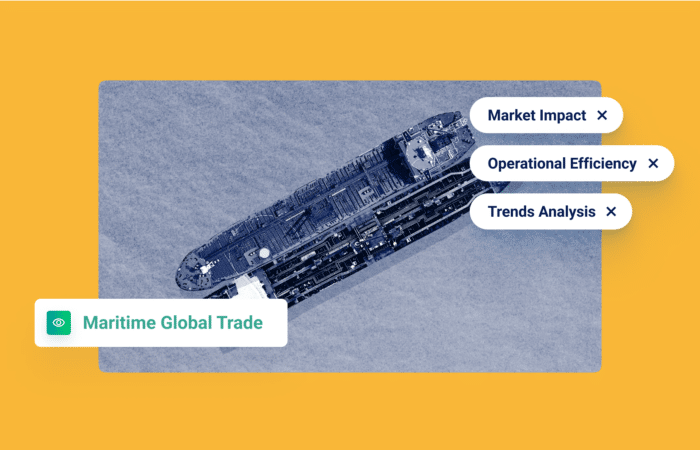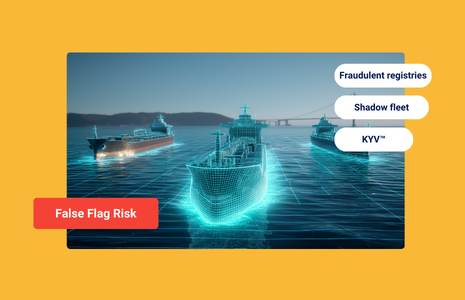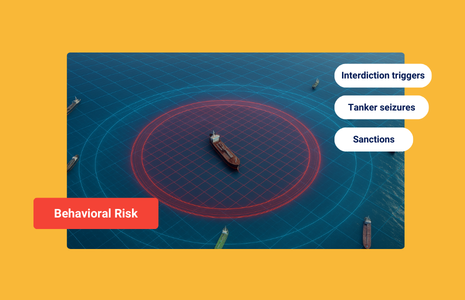Maritime legal exposure in a post-grain laundering landscape

What’s inside?
Ince, one of the leading legal and professional services firms operating in the maritime sector, and Windward jointly consider the new phenomenon of Russian grain laundering and the legal exposure for the maritime industry in this post.
As reported in several industry publications, Windward’s artificial intelligence (AI)-driven insights showed that ship-to-ship (STS) transfers were being used to steal, and subsequently smuggle, Ukrainian grain. This has prompted much discussion around the possible legal exposure and how concerned the market should be.
Following the recent decision of the International Group to restrict coverage for certain trades due to unclear and ambiguous guidance from the EU, there will be increased restriction of legitimate Russian trade. Unfortunately, the counterbalance to this will be a likely rise in illegal and illicit activity.
Dark activity (disabling the AIS) triggers an important alarm for the maritime industry, due to both safety and insurance concerns, as well as regulatory exposure as a result of the constantly changing and increasingly stringent sanctions against Russian entities, including individuals, companies, and vessels.
Participation in intentional dark activity not only raises a significant likelihood of violating sanctions, but also a likely breach of the requirements of the International Convention for the Safety of Life at Sea (SOLAS), as well as insurance and flag state requirements.
SOLAS permits an AIS transmitter to be turned off for safety and security reasons and similarly, the existence of ship-to-ship (STS) operations does not automatically mean that sanctions have been breached, but these activities do arouse suspicion that the vessel in question might be engaging in illicit activities and breaching sanctions. At the very least, they serve as a red flag.
A shift to commodities concerns
The recent identification of grain laundering marks a meaningful shift. Until now, most trading concerns have revolved around wet cargo, with the crude oil trade being the focus for the big trading companies and the global economy in relation to the application of sanctions and their impact. In April 2022, however, shipbroker Banchero Costa was quoted in Hellenic Shipping Notes as predicting a major impact on the grain trade:
“The Russian invasion of Ukraine has particularly strong implications for the seaborne grains trade, with a potentially significant impact on both dry bulk shipping and most importantly on global food security. Russia is the world’s single largest exporter of wheat, accounting for about 20 percent of global wheat trade in the 2020/21 season. Ukraine is also one of the top exporters of wheat, accounting for about nine percent of global wheat trade. The conflict in the Black Sea has disrupted the flow of grains from the region.”
Commodity traders, particularly those based in Switzerland, Dubai and India, have been accused in both industry and financial press of funding the war in Ukraine via the back door. The commodities industry is generally under-regulated and under-recorded, which has allegedly allowed commodities houses to act as intermediaries in Russian raw materials transactions. As a result, the Swiss Attorney General has recently indicated that the commercialisation of looted raw materials could constitute a war crime, even if committed abroad, adding that looting of this type might constitute a predicate offence to money laundering. This is a clear warning to the commodities industry to avoid dealing in coal, grain, or other commodities pillaged from Ukraine.
In addition to this threatened risk of criminal prosecution, as well as the serious consequences of breaching international sanctions, commodities traders (particularly the major commodities houses) will wish to avoid any reputational risk, or damage.
Traders suspected of dealing in stolen goods, or transacting with sanctioned entities, may find they have jeopardised their legitimate deals with reputable counterparties.
Commodities traders should, therefore, proceed with caution to avoid inadvertently greenlighting illicit trades or getting themselves involved with prohibited partners. When shipping goods to and from high-risk ports, they should use advanced technology to track voyage details and abnormalities, ensure that STS transfers are monitored, and that the origins of the cargo are identified.
A commodity trader that fails to exercise due diligence in respect of goods or counterparties may find it increasingly difficult to obtain insurance cover.
And with an increase in self-sanctioning (organisations choosing to distance themselves from Russian operations), traders may start to encounter difficulties in sourcing owners willing to undertake such voyages. They may also face increasing restrictions in obtaining trade finance and of course both P&I and H&M cover.
Just the start…
Interested in part 2 of this analysis? Click here. Ince and Windward cover potential insurance and P&I complications, reputational risk and the importance of due diligence, and nine proactive steps to reduce legal exposure.
Trending
- The EU’s 18th Sanctions Package Lookback Started. Trading Russian Products? You're At Risk. Nov 24, 2025
- Tanker Freight Rates Hit Five-Year High Amid Russian Oil Sanctions Shake-Out Nov 6, 2025
- Sanctioned, Stateless, and Still Sailing: Expert Insights from the Frontlines of Maritime Sanctions Nov 3, 2025











